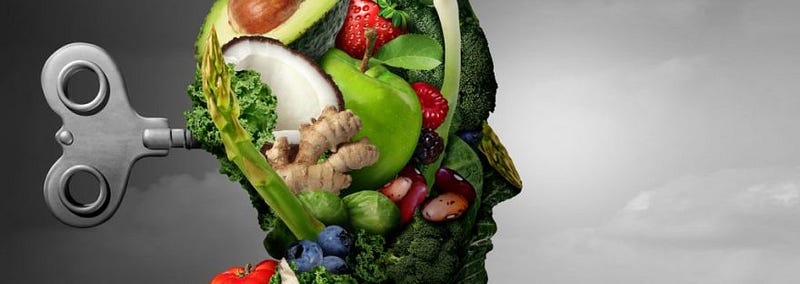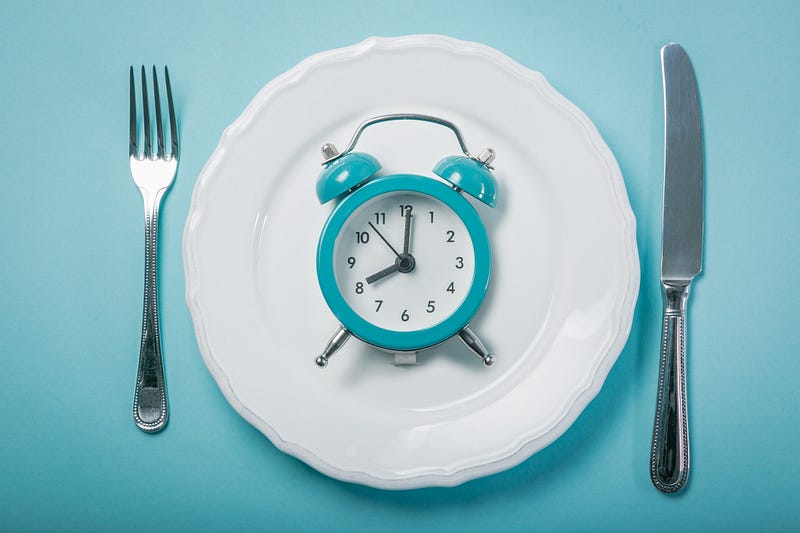
The three o’clock train going down the valley, and the five o’clock train going up, gave him a sad feeling, as if he had a butterfly in his stomach. He went to bed early, and the tears would come when he said, “God bless mother.”
Timothy, overwhelmed by homesickness and longing for his mother, experienced a peculiar sense of unease.
Residing at his grandfather’s residence as a young boy posed difficulties, mainly adapting to a new way of life and being separated from his mother.
Playing on his grandfather’s typewriter, while had occasionally alleviated his boredom, that longing sense would still confront him for his mother and home.
This is a subplot from the book The House of Prayer by Florence Converse. She is one of the earliest authors to use the idiom ‘a butterfly in the stomach’.

This phrase is commonly used today, especially in romantic contexts.
Think back to your first date or talking to your crush— remember that fluttering feeling in your stomach? It happens because of anticipation or the uncertainty of what’s to come.
While this idiom has been romanticized, it actually describes the nervous energy you feel in your belly when you’re anxious or excited.
Whether you’re giving a speech to a large crowd, going for a job interview, or having a serious conversation, “butterflies” may kick in your stomach.
While this phrase is a figurative component of language, recent scientific research has shed light on potential reasons behind this phenomenon. No, there aren’t literal butterflies spawning in the stomach, but there seems to be a rational explanation for why we experience this feeling, especially in nerve-wracking situations.
Science calls this the Brain-gut Connection, and it’s linked to how food affects our mental and emotional state, and vice versa.
The History
The idea of the brain-gut connection has a long history.
In his book Nouveaux élémens de la science de l’homme (1778), Paul Barthez discussed the vital principle, suggesting that certain organs possessed greater vital force than others.
He hypothesized that this vital force is crucial for an organism’s survival.

His student, Jean Grimaud further developed this theory, postulating that the vital force was regulated by an internal sense that is not controllable by will. He reasoned that this internal sense was at the center of the stomach.
In the 19th century, with the discovery of nerve endings in the gut, scientists started paying closer attention to the role of diet in influencing mood and behavior.
They suggested that dietary mistakes such as consuming unhealthy food or alcohol could harm these nerve endings, leading to negative emotions.
In 1838, in Dublin and surrounding English nations, gastrointestinal diseases were associated with overeating, excessive worrying, and a sedentary lifestyle.
Initially considered a condition of the upper class, it eventually became a concern for all social classes. Recommendations included eating slowly and in moderation and avoiding alcohol.
Influential researchers like Ivan Pavlov also studied the gut-brain axis through experiments on dogs.

In the 20th century, the development of brain imaging technology allowed researchers to delve deeper into the gut-brain axis. However, it wasn’t until the early 21st century that the microbiome-gut-brain axis gained prominence in research.
Scientists began investigating the significant role of gut microbes in communicating with the brain through mechanisms such as the immune system, metabolism, and neural pathways.
The Gut Microbiome
When we think of bacteria or viruses, the image that is conjured in our minds is that of slimy dirty organisms capable of causing illnesses or spoiling our food.

This naturally evokes a feeling of disgust, and consequently, we try to avoid contact with these organisms as much as we can.
They exist almost everywhere, and despite our conscious efforts to minimize exposure to them, the human gut houses about a hundred trillion of these microorganisms.
This is comparable in magnitude to the number of cells that compose the human body.
The collective population of these microorganisms is scientifically referred to as the gut microbiome. It plays an essential role in digestion and various physiological processes within the human body.
These roles include:
- Digesting the food we eat, breaking down complex molecules that our bodies cannot digest on their own. Such include fiber-rich foods like fruits and vegetables.
- They produce important vitamins, such as vitamin K and certain B vitamins, which are essential for our overall health.
- Help protect us from harmful bacteria and pathogens by outcompeting them for resources and space in the gut.
- Metabolizing certain drugs and chemicals, affecting how our bodies respond to these substances.
Bacteria and the Brain
Bacteria are simple life forms, like random NPCs in a video game, roaming and carrying out functions in our gut.
They lack brains and higher intelligence, or at least we don’t have a means of measuring that.
We, on the other hand, are complex beings with brains and nervous systems that attempt to consciously or unconsciously exert control on our bodies and environment, including the bacteria residing in our guts.

However, despite our brain’s efforts to coordinate bodily processes, recent research indicates that these seemingly simple gut microbes may influence brain function and behavior in various ways.
Pulling the Strings
Serotonin, commonly referred to as the “feel-good” hormone due to its role in contributing to feelings of well-being, happiness, and emotional stability is mainly synthesized by gut and microbiome cells.
Low levels of this hormone are associated with depression, anxiety, and mood disorders.

The gut microbial cells also produce gamma-aminobutyric acid (GABA), a hormone that helps promote feelings of relaxation and calm. Low levels of GABA are associated with increased anxiety, stress, and restlessness.
Certain gut bacteria can produce dopamine or influence its production in the body. They can modulate the levels of dopamine and its signaling pathways, which can impact an individual’s mood, feelings of pleasure, and emotional responses.
Some species of gut bacteria can influence the production and metabolism of norepinephrine, another important neurotransmitter.
Norepinephrine is involved in the body’s stress response (fight or flight), as well as attention and mood regulation.

Changes in the levels of norepinephrine caused by the gut microbiome can affect an individual’s stress resilience, emotional reactivity, and overall mood stability.
The gut microbiome plays a role in the metabolism of tryptophan, an amino acid used in the production of serotonin.
This could directly impact the levels of serotonin in the body affecting an individual’s mood and emotional regulation.
You’re What You Consume
The bacteria in our gut need to be properly balanced to maintain optimal physical and mental health. Our gut microbiome consists of many different microorganisms, some good for us and some bad.

The ideal balance is having more of the good, beneficial bacteria and fewer of the potentially harmful ones.
If this balance is disturbed our physical or mental health could take a hit. A major factor influencing this balance is the quality of our diet.
The Bad
You might have experienced scenarios where you got anxious or nervous after consuming certain foods.
Some of these instances involve drinking caffeine-rich beverages like coffee or energy drinks, consuming sugary snacks, or even ingesting foods you are allergic to.
There are certain foods and substances when consumed, negatively alter the gut microbiome:
- Highly processed foods
Foods that are heavily processed, and high in preservatives, artificial additives, and refined carbohydrates can create an unfavorable environment for beneficial gut bacteria.

These foods often lack fiber and other nutrients that support a healthy microbiome. It is best to limit junk and fast food, as well as vegetable oils which are inflammatory to the gut.
2. Sugar and artificial sweeteners
Some studies suggest that artificial sweeteners can alter the composition of the gut microbiome, potentially promoting the growth of harmful bacteria.
Additionally, extremely sugary foods and substances tend to drastically spike our blood sugar levels.
These drastic fluctuations are often accompanied by huge mood shifts.
If you have ever finished a pint of ice cream in one sitting, you probably have experienced an abrupt shift in mood.
3. Alcohol
Excessive alcohol consumption can damage the gut lining, and disrupt the microbiome balance, increasing the risk of bacterial overgrowth and inflammation.

While alcohol might offer you a temporary high, frequent use over time could lead to depression and anxiety.
4. Low-fiber diets
A diet lacking in fiber can starve the beneficial gut bacteria that rely on fiber for sustenance, leading to a decrease in their numbers and diversity.
The Good
Conversely, foods which promote a healthy microbiome population in the gut include:

- Fiber-rich foods: Foods high in fiber provide prebiotics that feed the beneficial bacteria in the gut. Some good fiber sources include fruits, vegetables, whole grains, legumes, nuts, and seeds.
- Fermented foods: Fermented foods like yogurt, kefir, sauerkraut, kimchi, miso, and kombucha contain live bacteria (probiotics) that can help replenish the gut microbiome.
- Whole grains: Whole grains like brown rice, quinoa, and whole wheat provide fiber, prebiotics, and complex carbohydrates that nourish the beneficial gut bacteria.
- Omega-3 fatty acids: Foods rich in omega-3 fatty acids can help reduce inflammation in the gut and support a healthy microbiome. They include fatty fish (salmon, mackerel, sardines), walnuts, and flaxseeds.
- Bone broth: Bone broth contains gelatin, amino acids, and minerals that can help heal and seal the gut lining, promoting a healthy environment for beneficial bacteria.
- Protein: Proteins contain nitrogen which helps limit the population of bad bacteria in the gut. Additionally, they produce an off-product, serotonin the feel-good hormone. Good protein sources include eggs, greek yogurt, broccoli, nuts, lean beef, turkey, and chicken.
Adopting these foods into your diet could offer a significant boost to your emotional and physical well-being.

Moreover, fasting is an effective method to support gut healing and promote the growth of beneficial bacteria within the microbiome.
Allowing your gut a period of rest enables it to undergo self-repair, while simultaneously depriving harmful bacteria, which thrive on unhealthy dietary choices, of their food source.
On Stress
We have seen that certain substances we consume can affect our microbiome, consequently influencing our mood and emotions.
Depending on the food, this could make us moody and anxious, even in the absence of mental or emotional stressors.

However, this interplay goes both ways. Our mental and emotional state can also exert effects on our gut health.
When we experience stress, for example, we are creating an unfavorable environment in the gut, further compounding the stress we are already under.
Stress especially when chronic, can affect our gut in different ways:
- It could disturb the balance of the gut microbiome, leading to an increase in harmful bacteria, which as we have previously seen, could disrupt our mood or emotions, further compounding the stress, in a cycle that could become destructive.
- Stress could influence our dietary choices, usually triggering cravings for unhealthy, ultra-processed foods high in sugar and fat. Such foods disrupt the gut microbiome.
- Stress hormones could directly alter the production of certain gut bacteria, disrupting the balance in the microbiome.
As much as dietary choices are important, managing stress is also crucial in maintaining optimal health.

Some good stress management techniques include:
- Regular exercise like walking, running, and strength training release endorphins which are natural mood boosters.
- Getting enough sleep. Aim for about 7–9 hours.
- Practice relaxation techniques like breathing and meditation.
- Engaging in hobbies and leisure activities you enjoy could offer a sense of accomplishment and relaxation reducing stress.
- Spending time with supportive friends and family.
- Journaling.
- Maintaining a clean, healthy diet.
- Seeking professional help.
Conclusion
Mental health challenges, such as anxiety, have become increasingly prevalent in our society.
While mental illness could be caused by different factors, emerging research suggests that diet plays an impact on our mental well-being.
At times when you are feeling overly anxious for no clear reason it could be due to the stuff you are consuming. Frequent consumption of that substance could contribute to recurring feelings of anxiety.

Conversely, existing mental health conditions like anxiety can also affect gut health, creating a cyclical pattern that exacerbates both issues.
Therefore, addressing mental health concerns through appropriate support systems and tips can positively influence gut health, helping break the vicious cycle.
Ultimately, understanding how mental health, gut health, and nutrition influence each other helps us take proactive steps toward a healthier mind and body.